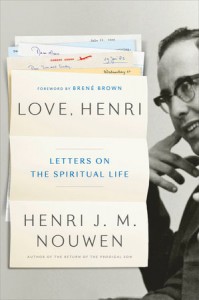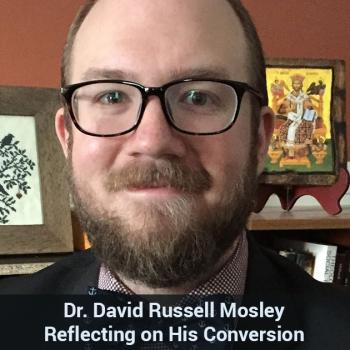
Dear Sam,
Thank you for sending me a copy of ‘Love, Henri: Letters on the Spiritual Life’ collected from the letters of Henri Nouwen. The work of Henri Nouwen has been on my radar for some time. Back in my protestant days, all my fellow classmates at Asbury Seminary put Henri Nouwen and N.T. Wright on similar footing, exceeded in devotion only by C.S. Lewis, John Wesley, and Jesus. I’m slightly ashamed to admit, I’d never cracked the binding on one of his books before this one.
There’s something about letters that you just can’t get from a book. Perhaps it’s because the author has to be more dispassionate and objective in a book. But when putting pen to paper in a letter, there is a level of rapport that allows for instant intimacy. All of the formalities can be skipped. All of the time taken to set up the thesis, and explain the biases and thought processes can be ignored. It’s old friends, picking up where they last left off. There is a vulnerability to letters that is refreshing.
It makes me want to write letters, honestly. That’s the overarching thing this book has imparted. I have a newly awakened compulsion to write letters to the people in my life that I respect and love. Letters make us slow down and process our thoughts more fully. I’m betraying something of the letter writing process by composing with a keyboard, and I do hope you’ll forgive me for not going all out in this first letter to you. One of these days I’ll send you something on high-quality paper that was written with a quill, but for now you’ll have to settle for this technological substitute.
Back to the book. I’m sorry for the delay in getting this letter to you. Navigating the family schedule with six kids in tow can be a bit tricky. They’re all down for Sunday nap right now, and I knew that if I didn’t sit down and write right now, it would be another week before I had the opportunity. You sent me the book in expectation that I would let you know what I thought about it. I honestly don’t feel up to the task. I feel that there are philosophers or theologians who could better communicate the richness of Fr. Nouwen’s work. I feel a bit like the oddball here at Patheos. I’m surrounded by very deep thinkers, by PhD’s, by academics, by prolific authors, and the like. And then there’s me. There are times when I feel that my voice is too loud and opinionated given my lack of external credentials. But for now the credential that I have is that I read the book, and I have thoughts about it.
As I mentioned earlier, I’ve always associated Nouwen with Wright and Lewis. As such, I was struck by how prominently his pastoral sensibilities dominated his letters. I’ve just always assumed he was more of an academic, concerned with the implications of word-choice and fretting over orthodoxy as so many of my favorite theologians do. But in his letters, it becomes almost immediately apparent that Nouwen is more concerned with the spiritual well-being of his letter’s recipient than he is with clarifying some deep point of doctrine. Each of these letters reads more like a conversation with a spiritual director than it does a treatise on philosophy or theology. It defied my expectations. I was surprised, not only by the general tone of these letters, but also by the diversity of the recipients. It is exceptional to read, and I wonder if that is because we live in an age that has largely abandonned the letter in general, or if he was always exceptional in this way.
Throughout these letters he was a pastor, a spiritual director. Throughout these letters he was happy to bare a little of his own soul, to give expression to his own weaknesses, and perceived inadequacies. That kind of vulnerability is hard to muster, and even harder to put on display day after day, year after year as Henri did. I wonder if I’ll find the humility to be that kind of honest (I doubt it).
The letter that stood out to me the most was right up in the very front of the book. It stood out to me, because it might as well have been written yesterday. It is was meant for Don and Claude, two priests who had attended his classes, but it might as well be written to the Facebook community struggling to figure out this (God forsaken?) Election. In it he said,
I hope that all the misery in the country and the world in general will deepen your hope for the kingdom of God, will strengthen your eschatological perspective, will make you more interested in the last book of the Bible, will make you more critical toward psychology and political sciences, will make you simple of mind and heart, make you pray more and love more and make your heart and mind open toward Him who is the Lord of life and who calls us to transcend all human endeavors.
It seems instead that we are getting sucked up in the filth of this political cycle, trying to be faithful citizens in a time when it is impossible to be both an apologist for either major political candidate and also a faithful citizen of heaven. How do we keep from plunging into anxiety, how to we keep from abandoning some essential principle of our faith at such a time as this? Nouwen seemed to think that the craziness of our times, by virtue of its craziness, would drive us to deepen our hope for the Kingdom of God. I’ve been guilty of getting so angry with the princes of the world that I’ve forgotten to rest in the Prince of Peace, who alone can bring true and lasting peace. So, 33 years after it was written, with a different set of “misery in the country and the world in general” I’ll spend the next few weeks taking Fr. Nouwen’s words to heart.
One last thought before my children wake up and need my attention, Fr. Nouwen gave considerable attention to the fact that we are unconditionally loved. In a letter to a woman experiencing a difficult separation from her spouse, Henri wrote this,
It seems crucial to me that now, more than ever before, you realize deeply that your worth and value does not depend on anyone else. You have to claim your own innter truth. You are a person worth being loved and called to give love, not because anyone says so or act so [sic], but because you are created out of love and live in the embrace of a God who didn’t hesitate to send His only son to die for us… Your being good and worthy of love does not depend on…any other human being. You have to keep saying to yourself: “I am loved by an unconditional, unlimited love, and that love allows me to be a free person, center of my own actions and decisions.”
How much better we would all be if we understood this and appropriated it? I think we get caught up in the affection of others, even on the impersonal level of social media. It’s easy to get caught up in how many clicks or likes or comments we get. How many folks minds did we change with that last brilliant post?! But in the end, Fr. Nouwen is reminding us that not only is the Kingdom of God a far better kingdom to worry about than which despot makes it into the White House, but also that the interior disposition of our soul toward our Creator is far more important than the acclaim we can stir up for ourselves down here.
I still have a little more reading to do, but I wanted to make sure I answered your questions. Thank you again for your generous gift of the book. I would recommend it to anyone who is sick and tired of temporary and unsatisfying answers.
Sincerely, Timothy.












